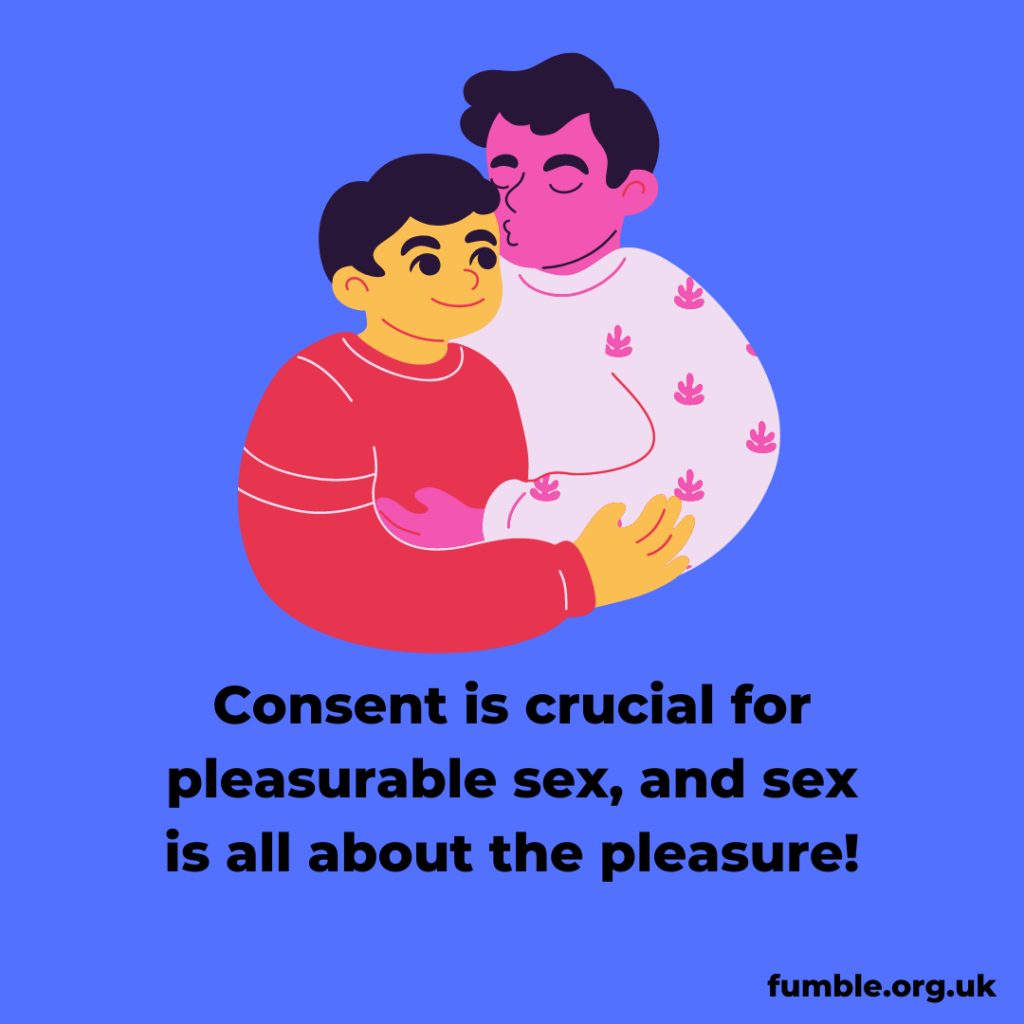Whether it’s a habit or the occasional time, many of us are faking orgasms. So what’s the deal behind the phoney O?
It turns out that faking orgasms is pretty common, especially for women and people with a vulva. There are lots of reasons that someone may fake an orgasm:
- We may be tired
- We might not be in the mood
- Perhaps we’re bored, but we don’t want to hurt the other person’s feelings
- We may want to call it quits, and feel that it’s easier to fake it instead of stopping
- We may be feeling the pressure to orgasm at the same time as our partner
- Maybe we don’t actually know what turns us on, and makes us orgasm
Note: we’re talking about ‘women and people with a vulva’ because this topic particularly relates to vulva-based pleasure and not everyone who has a vulva is a woman. Our genitals don’t dictate our gender identity.
But why do we feel the pressure to fake the orgasm?
A lot of ideas around ‘normal sex’ come from heteronormative PIV sex: a man and woman having penis-in-vagina sex, where they both orgasm at the end at the same time. Mainstream pornography adds to this, by showing this sexual intimacy as ‘normal’. But sex doesn’t have to be between a man and woman. It also doesn’t have to be penis-in-vagina, there are lots of ways to have sex. And whatever sex you’re having, it doesn’t have to finish with a simultaneous, explosive orgasm from both people. That’s just not how it goes in real life!
We all have different turn ons. Some people take a long time to orgasm, some people are quicker. It’ll depend on what’s going on in everyday life too, our mental health and mood affect our sex life. Perhaps we have to know the person intimately before feeling able to finish – orgasms can be pretty personal. The more the anxieties build about finishing ‘on time’, the less the orgasm does. People often need to be relaxed and comfortable to get anywhere close to orgasming.
On top of all of this is the orgasm gap. This shows the inequality of orgasms between men and women in heterosexual relationships, as in men are orgasming much more often than women when having sex together. Unfortunately this makes sense the go-to is penis-in-vagina sex. Most people with a vulva don’t orgasm from vaginal sex, and instead need clitoral stimulation. Hannah Witton goes into lots more detail in her video: about the orgasm gap, why it exists, and the pressure we can feel from others and ourselves to be orgasming.
Why can’t I just orgasm instead of faking it?
In order to orgasm, we need to understand our bodies and what feels good for us. Most people also need to feel relaxed and comfortable, whether that’s enjoying self-pleasure/masturbation or having sex with someone.
Unfortunately it’s common that women or people with a vulva don’t know what turns them on. This isn’t a failure of theirs, this is because we don’t get taught enough about vulva-based pleasure. Sex education, films and TV, media and our surrounding society heavily focuses on penis-based pleasure, e.g. the idea that sex finishes when the man finishes is still very prominent, and sex is usually assumed to be penis-in-vagina sex. This doesn’t only affect women and people with a vulva, but also LGBTQ+ people.
So it’s often down to teaching ourselves and working out how we want to be intimate with other people. That can take time. But that’s okay, because you have lots of time to explore your own body and find out what specifically feels good and pleasurable for you.
So how do we go about changing our faking habits?
That depends on the reason behind the faking and it might be helpful to think over that. Are you feeling the pressure to finish with a bang? You’re not yet sure what turns you on? Or something else/a mixture of it all?
Getting to know your own body may help with a lot of that: to let go of the porn-induced ideas, reduce anxieties, and teach yourself about what you enjoy. It’s much easier to communicate about what turns you on, if you’ve taken the time to find out by yourself. Masturbation is a wonderful way to do this.
Remember: if you’re faking because you want to stop or finish sex faster, you don’t have to carry on if you don’t want to. Everyone has the right to stop having sex and to change their mind. No-one should be pressuring you into sex.
We know that it can feel really complicated to say no to someone, especially if you have feelings for them. But if the person is worth your time, they will want to hear how you’re feeling and they will respect your no. We also know that sometimes the pressure can feel like it’s coming from ourselves; this idea of ‘normal’ pops up again, telling us how we ‘should’ be having sex. There’s no such thing as a ‘normal’ way to have sex! But this inner conflict can still be difficult to feel. If you’re struggling with feeling pressure around having sex, reach out for support. You don’t have to manage this alone.

Should we be confessing to fake orgasms?
There’s no right or wrong here. That’s entirely up to you.
If someone brings this up with you and you’re told that they’ve been faking orgasms, try to give them space to explain instead of instantly leaping to the assumption that you weren’t good enough in bed. Of course, it’s more complicated than that! Everything we’ve discussed here shows that. It can feel tricky not to take this as a rejection, but remember: this stuff is hard to bring up, and the fact they’re being honest with you is a huge show of trust.
Other support
Read more
Last Reviewed 15 March 2023
Image Credit: Quang Tri Nguyen via Unsplash




